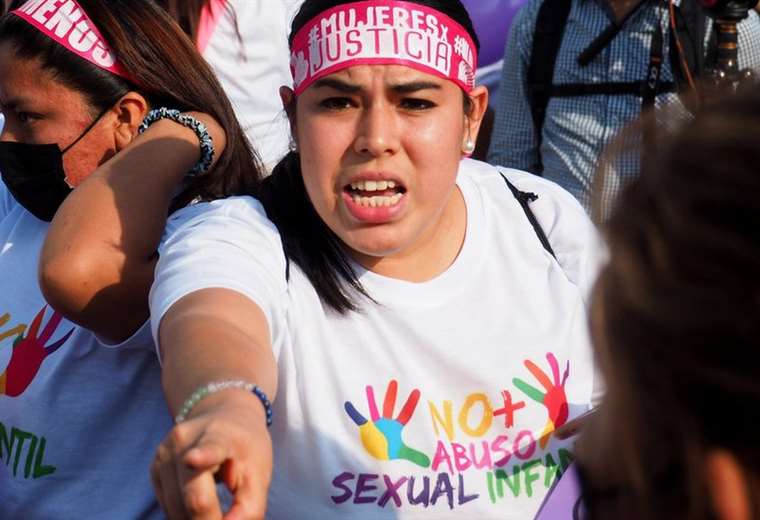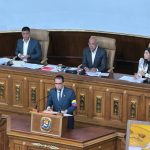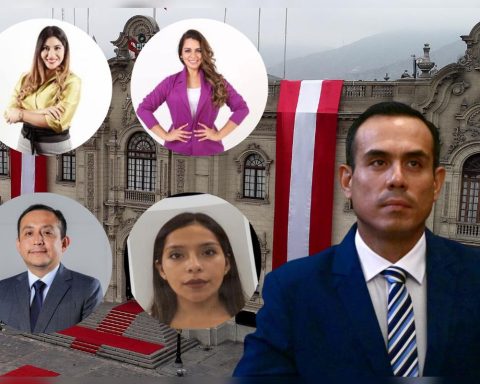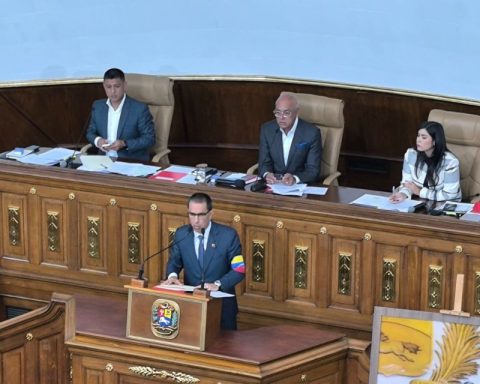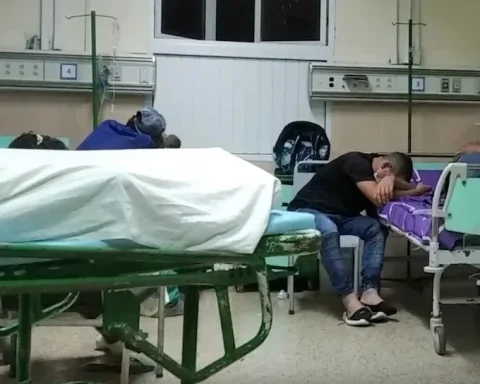July 16, 2022, 12:16 PM
July 16, 2022, 12:16 PM
Peru has long been mired in political paralysis.
Since peter castle was elected president as the candidate of a left-wing party after narrowly defeating Keiko Fujimorithe tension between the government and Congress dominate national politics.
Fujimorism maintains a frontal opposition to Castillo and with other conservative forces poses a permanent struggle in Congress, where the government is forced to permanent negotiations to forge the precarious alliances that allow it to survive. Without a stable majority, Castillo has already faced two vacancy attempts.
But there is something on which a majority does agree in the Peruvian Congress: the legal changes on education and family that, according to some experts, are leading to a “ultraconservative wave” in the country.
Natalie Gonzaleza senior researcher at the Institute of Peruvian Studies, told BBC Mundo that “despite the existing polarization, there is a surprising similarity in the conservative thinking on issues such as family and women between President Castillo and the opposition in Congress” .
According to the expert, in recent months there has been “an avalanche of regulations that respond to an ultraconservative agenda that pushes back equality and endangers the advances in public policies achieved in recent years.”
Below, BBC Mundo explains three recent laws that show that agenda.
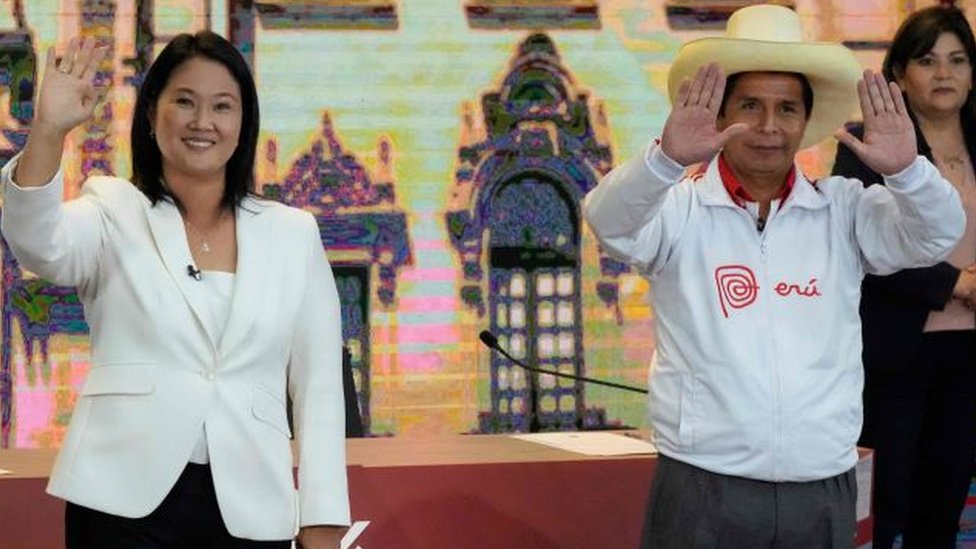
From the Ministry of Women to the Ministry of the Family
A parliamentary commission approved on July 5 a bill to change the name of the Ministry of Women and Vulnerable Populationswhich would be called Family and Vulnerable Populations.
The congressmen who promote change point out that it is not only women who need protection and who suffer abuses in society.
“Certainly, violent women are a vulnerable group in our country that deserves public policies that protect them; but also children in a state of abandonment and older adults in the same state of abandonment need public policies that affect their protection,” points to the motion they signed.
The standard, still pending final approval, has set off the alarms civil organizations and international organizations.
The United Nations representation in Peru issued a statement in which it expressed its “concern” about the “setback” that such a change of name would imply.
According to the statement, “eliminating the reference to women and replacing it with family would reinforce the exclusive value of women for their reproductive role and would make invisible the persistent discrimination and structural inequality against women and girls” in Peru.
Also the current Minister for Women, Diana Miloslavichhas spoken out against the change. “We women are the most affected by the pandemic, and multiple structural inequalities are added to that,” she recalled.
But the fact that the minister is opposed does not guarantee that the change will not be finally approved, nor would it be the first time that there are contradictions in Castillo’s cabinets.
The project must be submitted to a vote in the plenary session of Congress. If it goes ahead, the government could “observe” the law, as the procedure by which the executive can raise objections to approved laws and return them to the legislature is known in Peru.
Castle has not yet spokenbut the caucus of Peru Libre, the party for which he was a candidate and whose votes he needs, made his position clear in a statement stating that “the protection of the family is a fundamental pillar” and that “the rights of Peruvian women must be guaranteed within the family as the basic cell of society”.

A law against “gender ideology”
Law 31498, approved on June 23, “promotes the quality of educational materials and resources in Peru.”
Despite its official name, the rule has caused controversy for being an old demand of the group known as “Don’t mess with my children”, a group linked to religious sectors opposed to the teaching of what it calls “gender ideology” in the school.
Alejandro Muñante, exporter of the group and today one of the congressmen of the party People’s Renewalwho promoted the rule, told BBC Mundo that the goal is “that there is no education that in one way or another guides the child to adopt certain behaviors that for parents can be harmful to their children, such as the one that has to do with anal intercourse.
Muñante believes that “since 2017 the gender approach has been imposed in Peru without consultation” and celebrates that the approved law “creates the mechanism for parent participation in the formulation of educational content” by establishing that parent organizations They will have the right to veto textbooks and school materials that they consider inappropriate.
The professors who disregard that veto they may be penalized and even lose their jobs.
Susana Chávez, director of the NGO prom-sexconsiders that the law “is highly dangerous, since it aims to remove the entire issue of sexual equality and diversity from the curriculum,” which could aggravate the problem of homophobia in Peruvian classrooms.
Also International Amnesty spoke out against a law that “seeks to grant certain groups of parents the power to approve or reject educational materials at their discretion, leaving the door open for religious and moral dimensions to be incorporated into their preparation.”
That “would limit the implementation of comprehensive sex education and education with a gender approach, which are essential to prevent gender-based violence and move towards an education based on equality.”
Castle’s government did not object to the law. The Ministry of Education did not respond to a request for comment from BBC Mundo.
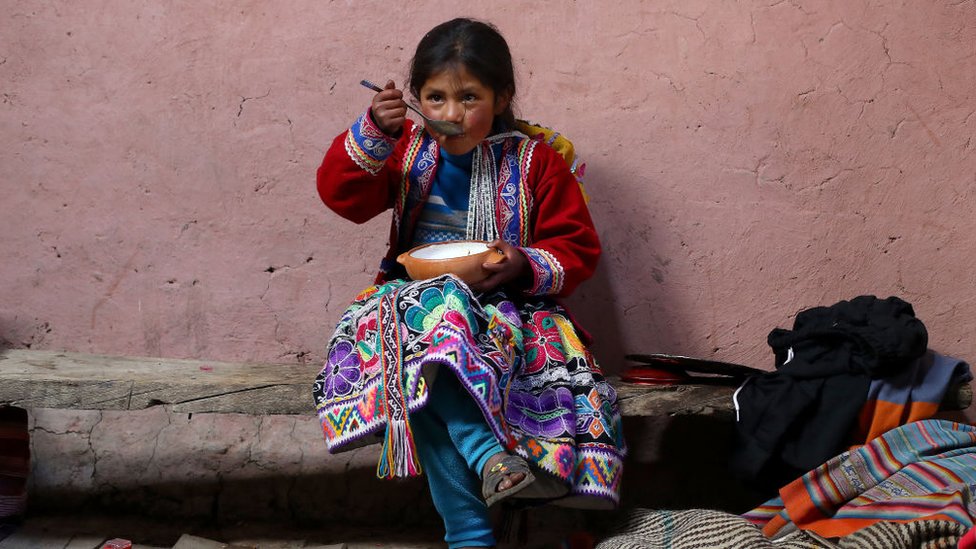
Shared custody of children as a norm
Congress also overwhelmingly approved on April 8 the reform of the law that regulates shared custody of minors in Peru.
The new norm establishes that in case of separation both parents can spend the same time and have the same rights regarding the education of minors, except in cases where a judge rules otherwise.
The problem, according to the detractors of the norm, is that it opens the door for men reported or convicted of domestic violence maintain their control over the nuclear family even when the women have resolved to break off their relationship.
The NGO Save The Children assured in a statement that the law “does not contemplate the serious situation of violence within homes, mainly against women, girls, boys and adolescents.”
According to the figures of this organization, between January and February 2022 alone, more than 24.000 domestic assault casesincluding physical (40%), psychological (45.5%) and sexual (14%) violence.
Congressman Muñante believes that the objections that the law has raised are due to “ideological prejudices” and affirms that the new rule allows the family judge to annul shared custody when there is danger to the minor.
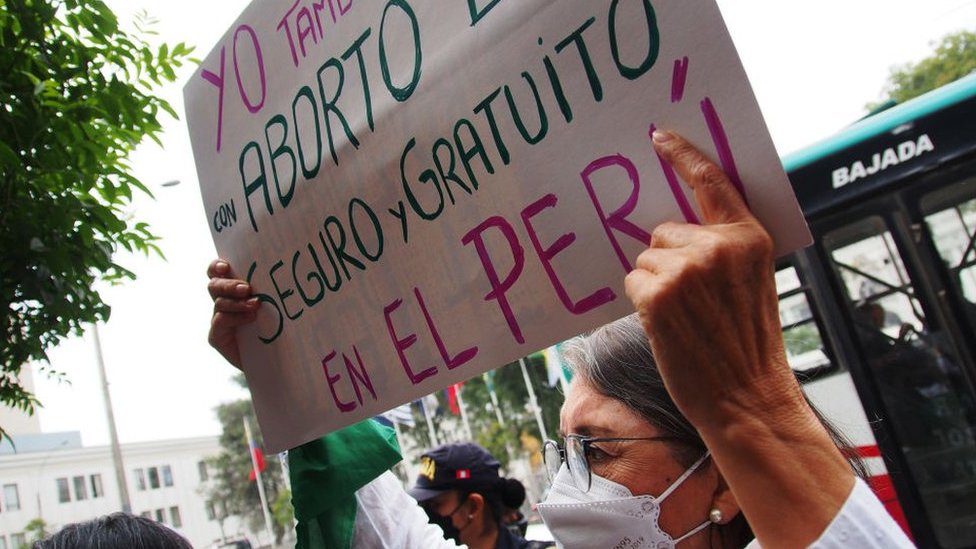
Changes in abortion?
Other initiatives still pending in Congress have raised concerns.
A bill presented by Renovación Popular is awaiting debate in the Justice Commission that “recognizes rights to the conceived” and that, according to its critics, it intends to place the woman and the embryo on an equal footing from the very moment of fertilization.
If approved, it would imply a further tightening of access to abortion in Peru, where it is only allowed in cases where the woman is in danger of death or suffering a “serious and permanent illness” if she does not interrupt the pregnancy.
The government could observe the law, if it is approved, and present objections, but it is difficult for that to happen since Castillo in the campaign declared himself against abortion, euthanasia and non-heterosexual marriage.
But what happens in Congress then will depend, according to analyst Natalia González, “on the political moment and how many votes the president needs to sustain himself.”
Now you can receive notifications from BBC World. Download the new version of our app and activate it so you don’t miss out on our best content.
